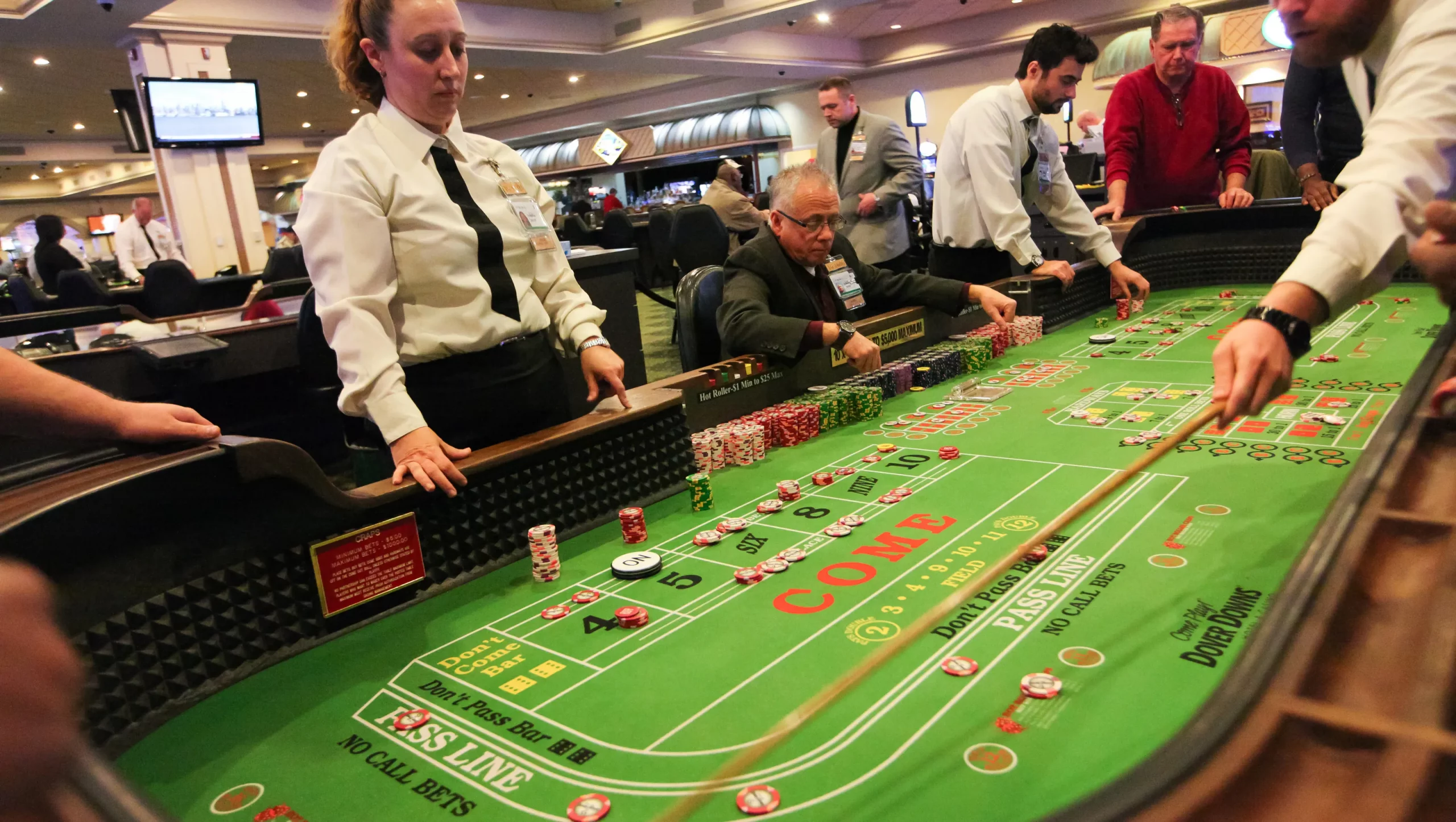Delaware casinos are counting on a tax-cut bill.
The state’s chief proponent of lowering the taxes paid by Delaware’s three casinos is making one final effort to strike an agreement before leaving office in November. “I’m not going to predict success,” said Dover state Sen. Brian Busheweller. “However, I am more optimistic than ever that we can do something.” Bushweller’s chances of success may be improving after two failed attempts since 2015. His most recent tax relief proposal, which he believes would cost the state $20 million per year, has the support of major Senate Democratic leaders. Senate Finance Committee Chair Harris McDowell, D-Wilmington, has also committed to send the bill to the entire Senate, which previous attempts have failed to do.
But first, McDowell wants Gov. John Carney to try to negotiate a new agreement with the casinos.
“The subject of revenue sharing between the State and our state’s casino operators is such a complex and perilous one,” McDowell stated in a letter to the governor. “If negotiations fail to produce an alternative, I will release this bill from committee on March 14th.”
Carney’s office has yet to organise meetings with the state’s casino operators, despite the deadline. He also left no room in his planned $4.25 billion spending plan for the following fiscal year – a budget blueprint that predicts $170 million in additional revenue.
“Delaware’s three racinos are important employment – and provide significant cash for the state,” according to the announcement. “Delaware likewise has long-term budget and revenue issues.” When contemplating regulations affecting our state’s casinos, the governor will examine all of these concerns.”
Bushweller and the casinos, which employ over 3,000 people, have long complained that Delaware’s present tax system threatens their ability to stay in business, especially given rising competition in neighbouring jurisdictions.
Delaware may be the first state to offer sports betting
Since 2009, Delaware has collected almost 43 percent of statewide slot machine income, up from 36 percent the previous year and roughly double what casinos were forced to pay in the mid-1990s. The state also receives almost 30 percent of all gross revenue generated by the casinos’ table games, as well as $3 million in table game licence fees per year.
“The casinos pay the same taxes as any other firm, including income tax, payroll tax, and gross receipts tax,” said Bushweller, who is not running for re-election. “However, they must also contribute to the state and the horse racing business.” The Delaware Park Racetrack and Slots in Stanton and the Harrington Raceway and Casino in Harrington did not reply to calls for comment.
On Monday, Carney spokesperson Jonathan Starkey declined to disclose whether any talks would take place. Instead, he issued a statement issued by the governor’s office whenever the subject of casino tax reduction comes up. However, Dover Downs Hotel & Casino, which is publicly traded, claims that the impact on its business is evident. In 2017, the company lost more than $1 million, its second yearly net loss in four years. However, the deficit appeared only after the casino had completed payments of $75 million to the state and the Delaware Standardbred Owners Association.
“To me, that tells it all about the fairness of the state’s current tax structure,” Dover Downs CEO Denis McGlynn said. “When the state raised our taxes in 2009, we told them we’d struggle to exist.” That’s what you’re seeing right now.” Bushweller’s measure would reinstate a tiered tax rate on slot revenue ranging from 32 to 43.5 percent, reduce the gross table game tax rate to 15 percent, and eliminate the annual table game licence fee entirely. The measure would also abolish a prohibition on Delaware casinos operating on Christmas and Easter.
Some of these measures are unpopular with other lawmakers.
House Speaker Pete Schwartzkopf, D-Rehoboth Beach, said he’s willing to explore lowering the 2009 table game tax, but not much else. “We basically reached up into the air and picked a figure since we didn’t know what to charge when we put the tax on table games,” he explained. “We always said we’d go back to that if it turned out to be too high, and we’ve never done that.”
Bushweller stated that his bill is only a beginning point for discussion.
“I’m optimistic that by March 14 there will either be some kind of agreement that might serve as the basis for a new bill or significant progress in that regard to make it worthwhile for everyone’s time to continue those conversations,” he added. If the governor’s office refuses to take the lead, Bushweller said he will call on his colleagues in the General Assembly to reach their own solution.
“By and large, the Kent County delegation to the General Assembly has always been supportive of these huge economic development measures in other parts of the state,” he added, citing recent tax breaks for DuPont and The Chemours Co. “What we’re looking for now is for folks from other sections of the state to come to our aid in this time of need.” Meanwhile, McGlynn stated that there are no urgent plans to cut workers at Dover Downs.
In the months following its first-ever year-end loss of $706,000., the company slashed roughly 50 positions and discontinued serving table games during early weekday mornings. Dover Downs made a pitiful $13,000 profit in 2013. McGlynn, on the other hand, predicts a rough start to the year if Dover Downs does not acquire the breathing room it needs to modernise its outdated hotel or advertise its casino in out-of-state markets. Maryland Live in Hanover, Maryland, on the other hand, is set to finish a $200 million expansion this spring that will include a 17-story hotel and a 1,500-seat performance facility.
“The sector outside of Delaware is growing and improving,” he said. “However, we’re stuck attempting to repair our peeling wallpaper, ripped carpets, and cracked sidewalks.”


